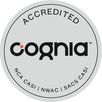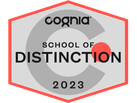IDEAVENTIONS ACADEMY
 Now that we covered Computer Science, Engineering and Math, we’ll begin our series on Science to round out the STEM philosophy. It is a series of posts because science at Ideaventions Academy is made up of two years of earth science, one year of biology, one year of chemistry and one year of physics and each field of study deserves to be focused on individually. Whether it is pursuit of understanding through field research or lab research, when I have heard scientists discuss their work, I see them light up as they talk about their experiences. With that in mind, that’s the type of experience that we want our kids to have: The hands-on exploration and experimentation that is science. Today’s post covers the philosophy behind our sequence of study. The sequence and level is an accelerated curriculum for inquisitive children. For reference, most traditional curricula have children in the elementary grades study a variety of units each year across the different disciplines: Earth and Space Science, Life Science and Physical Science. In Virginia, children then study a year of Life Science in 7th grade and Physical Science in 8th grade. When we set forth to design the Academy curriculum, we wanted to draw upon research and our experience. The curriculum focuses on nurturing a child’s natural interests, but exposing them to a deep, challenging curriculum taught by enthusiastic and knowledgeable teachers (featuring scientists with lab and field research experience). We want to see each child have his or her own area that makes them light up. One child may love microbiology, while another one loves quantum physics and yet another aspires to be a marine biologist. In the five years that we have worked with children at Ideaventions, we have seen time and time again that when children are intellectually curious, they can engage in and understand advanced concepts and the kids in the class lead us, as educators, to dive deeper. The curriculum is designed with learning experiences that support students integrating knowledge through inquiry-based experiments and studies. We want children to discover and experience concepts, make connections and not just read or be told about them. This is an approach that resonates with the National Science Teachers Association (NSTA) position on science education and science education reform initiatives. We start with earth and space science, which we do between 4th and 5th grades. The earth sciences are so broad, encompassing geology, hydrology, the atmosphere, space, oceanography, ecology and environmental science, that we need two years to provide the depth necessary for understanding and learning without being rushed. We start our youngest students with this sequence because it is also the most concrete. At 6th or 7th grade, we introduce molecular chemistry that covers the fundamental concepts in chemistry. We study chemistry before studying biology because it sets the foundation for many of the biological concepts that are studied, and by having the chemistry background, we are able to go in more depth in biology in 7th-8th grade where we study cellular biology, molecular biology in addition to ecology and biodiversity. Finally in 8th grade, once all of the children have had or are taking algebra, we study algebra-based physics, which includes Newtonian, or classical mechanics, electricity and magnetism, optics and thermodynamics and ends with an introduction to quantum physics. Electives 1) enrich the curriculum, such as a class on the Great Experiments in Biology and Chemistry; 2) allow for the next level of study; such as an organic chemistry class; or 3) allow for original research after having studied the foundations. Our goal is that by the end of 8th grade, all students will have been exposed to all of the natural sciences and have had an opportunity for further exploration based on each child’s interest through electives. As you have probably noticed by now, we alternate topics between the whole child and academic subjects. So, we’ll pick up again in two weeks and deep dive one of the science fields of study.
0 Comments
Your comment will be posted after it is approved.
Leave a Reply. |
AuthorJuliana Heitz is co-founder of Ideaventions Academy and is very excited to share the thinking behind the Academy. Archives
October 2023
Categories |
Copyright © 2010-2024| 12340 Pinecrest Road, Reston, Virginia 20191 | 703-860-0211 | [email protected] | Tax ID 27-2420631 | CEEB Code 470033
 RSS Feed
RSS Feed




